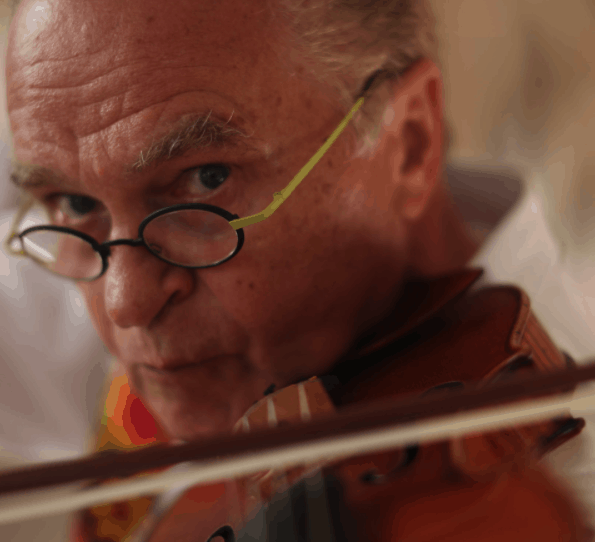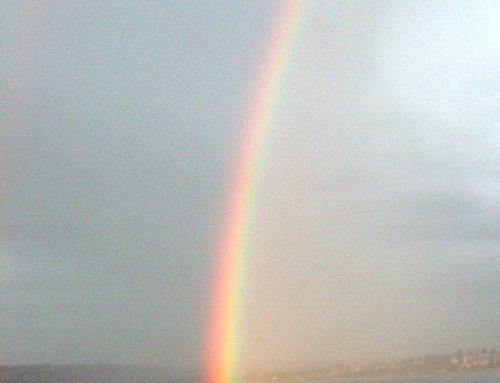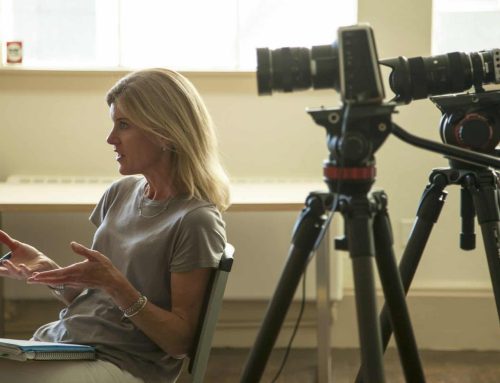How Miha Pogacnik Helps Transform the World Through Music and Art

Violinist Miha Pogacnik is a modern-day wizard.
True, in recent decades, words like that have lost their meaning through misuse and marketing hyperbole. When anyone with something to sell can force powerful language to serve small and ignoble goals, it’s easy to forget that such things as genuine wizardry and magic still exist. Occasionally, however, a person comes along to remind us, and Miha is one of them. Born in 1949 in war-ravaged Slovenia, he is a true master of musical magic—not content simply to entertain or enthrall an audience, or to bask in praise and applause.
As a young man, Miha achieved all of that, ascending to the top among his peers to become a rising-star soloist, sought after and respected. His path into “greatness” was laid out before him, and traditional “success” was his for the taking. Instead, he walked away and chose a different road. Or, to be precise, he carved his own, brand-new course through the wilderness of limited and limiting options.
I first met Miha more than twenty-years ago at one of our (Ericsson’s) first “ENGINE Arenas” on a cold, dark, winter Stockholm day where he brought sunshine, wisdom and creativity to my team while myself and hundreds others sat in the Globen Arena transfixed by what they were witnessing. Little did I know at the time, but Miha’s work has transformed the intersection between business and music, between creativity and mysticism – how do you break down the perceived and real barriers to get to breakthrough visionary thinking. We’ve stayed life-long friends to this day, and no one who was sitting in the Arena that day will ever forget Miha – and to understand a little of where he’s come from to where he is now (his “Fourth Life) is a wonderful tale of success to hear in his own words.
* * * * *
“Something was fundamentally wrong—that you put so much energy into mastering your skills and the magic, and then when you are finished people applaud and they love it, and then it’s over,” Miha says, his words shaped by an endearing Slovenian accent. “They go home to drink or sit in front of the television. I always felt that when the concert is finished, then the beginning should happen, not the end.”
Since leaving a conventional life behind, he has pursued that elusive “beginning” across a long and winding career, marked by bold action and visionary thinking. The years have forged him, turning him into an alchemist bent on harnessing the mystical power of music to turn the base metals of the present-day human condition into the original, magical gold we all possess, but have forgotten lies within us. It’s a grand mission aimed at nothing short of the social and cultural transformation of the world.
“In the deepest province of the human soul, there is magic,” he says. “That’s what we are. Unfortunately, there is so much dust and ash covering it these days. In essence what I do is go around opening the dampers in people’s lives so the fire flares up again.”
Miha’s Fourth Life
To grasp the nature of Miha’s twenty-first-century work—what he refers to as his “fourth life”—imagine yourself in his “laboratory.” Picture a broad stage where all the skilled musicians in a philharmonic orchestra are seated in curved rows, instruments at the ready, eyes on their conductor. Feel the breathless anticipation in the sudden silence as Miha lifts his violin bow, all the potential energy of a musical masterpiece awaiting release. The music begins, and a galaxy of dancing sound appears in the room.
Yet in this scene you don’t play the role of detached observer looking down from the balcony. You are embedded in it, seated in a row of chairs placed between the stringed instruments and the woodwinds. You feel the vibrating frequencies of music caress your skin through the air and rumble in your bones as it rises out of the floor. Your heart expands with emotion until you fear you’ll burst. The music is a buoyant force that nearly lifts you free of gravity itself.
The picture isn’t complete, however, until you look to your left and right and see the true purpose behind the gathering of musicians. Without this, the entire exercise is just another performance of timeless music—marvelous, perhaps, but without the full potential for the kind of alchemy Miha seeks to create.
Because seated beside you are a number of high-ranking executives from some of the world’s largest and wealthiest corporations. These are powerful men and women, decision-makers, whose actions every day have profound influence over the lives of millions of others—trillions, if you include the non-human creatures with whom we share the planet. They sit in boardrooms and back rooms around the world and literally chart the future of humankind through the values they express in their choices and priorities.
“Some start crying,” Miha muses. “It’s like a catharsis. They remember they are human. They forget their power and rank. If you get people close to that point, then suddenly everything is possible, and it’s not just the bottom line and profit margins. The real things come to the surface.”
“I have always been trying to unlock the mystery, why was music in the ancient cultures so powerful? Thousands of years ago, music was regarded as the most sacred and most powerful element of society, and therefore you had to be bloody careful how you handled it. I wanted to know, what are the deeper secrets of musical magic that we have forgotten in the process of making it aesthetic and formal?”
So he turned his back on the life of comfort and prestige that all his hard work had earned him. He set out on a quest to be a musician of the highest quality he could possibly attain—and an agent of needed change in the world.
“The arts represent the courtyard before you enter the temple of transformation,” he says. “They tune you up to that frequency with which you can enter the temple of knowledge. I’m not just an activist to be active on the outside, but I’m also working to create the inner capital, the spiritual capital that brings dynamic balance.”
It’s not easy work, nor is it easy for those who are touched by his message. At heart Miha has never stopped being a radical, and he pushes others to the radical life as well, come what may. “When people ask me what is real inspiration, I say go to the mountain just after the lightning hits and have a look what happens. You’ll see all the smoldering trees and all the rest.”
In other words, he says, don’t be afraid of the kind of inspiration that burns down all that you think you know, so that something new can take its place. Don’t be afraid to reinvent yourself as many times as it takes to follow your dream.
“We live in a very pragmatic time,” he reflects. “We are not capable of grasping what idealism means, really. It’s very rare to find people who have a blazing idealism. If you have very high ideals about what you’d like to achieve, then all of the setbacks don’t kill them. Your ideals fuel resiliency and fire your passion, so you can start again.”
For more information or to book Miha, please go to http://mihavision.com/. And to read more of Miha’s story (and seven other amazing individuals just like him transforming themselves and the world), please go to www.yourpersonaleverest.com/books or Amazon for your copy of Climb Higher.








